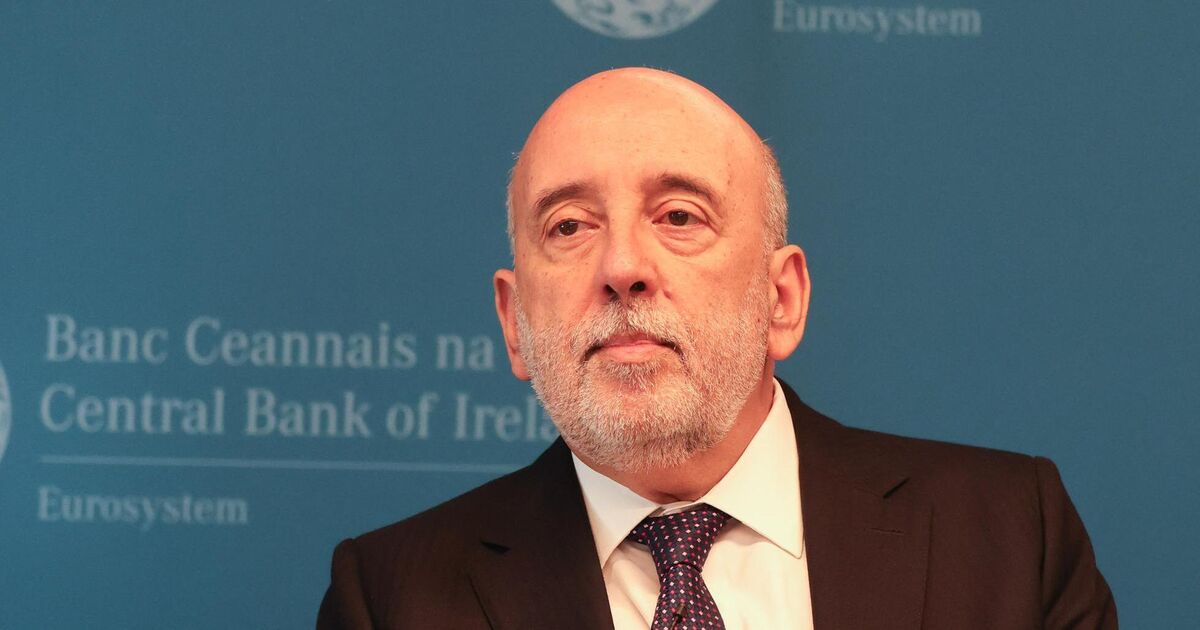After Brexit, Israel chose the Central Bank of Ireland to be the ‘competent authority’ under EU law for the purpose of approving its bond prospectus.
The bond prospectus is the key marketing material, and without the prospectus’ approval Israel cannot sell its bonds within the EU.
Israel openly advertises ‘Israel Bonds’ as contributing directly to the state’s military objectives.
The programme’s homepage features videos promoting the contribution of bonds to Israel’s military capacity, and the website states the programme has accrued $5bn for Israel since October 2023.
International media have also reported on Israel’s ‘Bond spree’, intended to pay for its military offensive on Gaza.
We, along with fellow legal academics working across Ireland, have written to the governor of the Central Bank urging him to refuse to re-approve the Israel Bonds prospectus this week, and to prohibit the marketing and sale of these bonds in or from Ireland.
We did this because of our strong conviction that involvement in the programme puts the Irish state in violation of its obligations under international law, including the 1948 Genocide Convention, the 1949 Geneva Conventions, and the obligations identified last year by the International Court of Justice in its advisory opinion on the unlawfulness of Israel’s continued presence in the occupied Palestinian territory.
We believe the governor has ample power under existing EU regulations to refuse to participate in the Israel Bonds programme.
Investment in Israel Bonds raises the prospect of complicity in genocide, war crimes, and crimes against humanity.
Individuals can be held liable for complicity in genocide and aiding and abetting war crimes and crimes against humanity under international criminal law.
This risk to investors is not something Israel is disclosing. It is something the Central Bank can and must take action against.
As a party to the 1948 Genocide Convention, Ireland is obligated to do everything in its power to prevent genocide whenever it is aware of a significant risk of a genocide taking place.
The International Court of Justice recognised the existence of this risk in an interim order made in January 2024, in the case brought by South Africa against Israel under the Genocide Convention.
Taoiseach Micheál Martin has in fact acknowledged directly that what Israel is doing in Gaza constitutes a genocide — during leaders’ questions on May 28:
“Prime minister Netanyahu and the Israeli government … are committing genocide in Gaza right now.”
Ireland is also obliged, as a party to the 1949 Geneva Conventions, to ensure that other states respect international humanitarian law: the body of law that governs armed conflict.
The Irish state has consistently recognised that Israel is committing war crimes in Gaza, and that Israeli settlements in the West Bank and East Jerusalem also constitute war crimes under the fourth Geneva Convention.
Furthermore, our involvement in the Israel Bonds programme simply cannot be reconciled with the International Court of Justice’s advisory opinion of July 19, 2024, finding Israel’s occupation of Gaza and the West Bank, including East Jerusalem, to be wholly illegal.
According to the court, all states must avoid doing anything which contributes to maintaining the Israeli occupation.
This exact point was argued by Ireland’s Attorney General Rossa Fanning SC before the Court in February 2024:
“States are, likewise, obliged not to render aid or assistance in maintaining the situation created by Israel’s breach of its obligation to respect the right of the Palestinian people to self-determination.
“The General Assembly and Security Council have, in the past, called upon all states to refrain from rendering any assistance to the maintenance of situations of denial of self-determination.”
The Central Bank may be an independent body under Irish law, but it remains a part of the Irish state.
The fact that it enjoys some institutional autonomy does not take away from the fact that when it acts, it acts on behalf of Ireland, and so Ireland is responsible for its actions in international law.
The Government’s words about Israel’s genocide in Gaza are strong. Authorising a programme of funding for the genocide undermines those words entirely, and puts Ireland in violation of its legal obligations.
Pearce Clancy, Irish Centre for Human Rights, University of Galway; Maeve O’Rourke, Irish Centre for Human Rights, University of Galway; Professor Aoife O’Donoghue, Queen’s University Belfast; John Reynolds, Maynooth University
